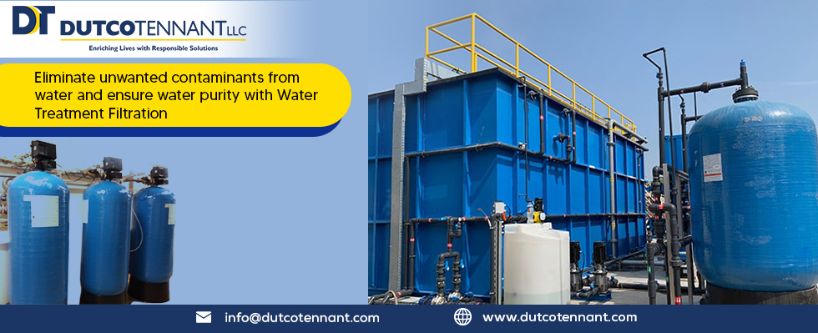
The Significance of Filtration in Water Treatment Systems
Filtration is a key process for many commercial/industrial process water & wastewater treatment applications. Practically, pumping wastewater from somewhere such as a refinery, textile or oil, food & beverage water application has the need of pre-filtration mainly because of the presence of a high number of suspended solids in them.
As a matter of fact, there are usually several water treatment filtration steps in such applications in order to ensure that the water that is treated is able to meet the standard of discharge or reuse. In addition, the significance of water filtration is critical in water treatment processes such as process water or wastewater discharge or reuse.
Below we have enumerated a few advanced water treatment processes where the filtration step is pretty important. Continue to read till the end to find out about them and understand the importance of filtration in water treatment systems.
Disinfection
This filtration process is generally intended for treating the microscopic pathogens present in water by way of oxidation. However, it is to be noted that there are chances of interference due to the presence of particulate matter and this might decrease the efficiency of these treatment units.
Finer filtration
In finer filtration process, the use of advanced filters such as ultrafiltration, reverse osmosis filters, micro or nano filtration are used. Finer filtration are intended to operate on waters that have gradient particles in them. They initiate the filtration process with an abrasive course and move along in later steps to the finest level necessary.
This is of course designed to make the filter running for as long as possible prior to their need for cleaning, replacement or back washing. For a mixture of silt, clay and suspended sand in a wastewater solution, this filtration process instantly filters these impurities out through a nano filter as they tend to clog up the system pretty quickly.
Other filtration processes might not be sufficient enough to catch these gradients and fine impurities.
Coagulation
A certain level of pre-filtration is a prime necessity for any chemical or electrochemical system in order to attain effective treatment. A coagulation system is typically used for flocculating or coagulating small particles that usually doesn’t settle out immediately.
The addition of either electrical current or chemical additives is the key to drive the process. But these processes usually work best at specific concentration ranges for the targeted elements.
Therefore, in order to ensure maximized efficiency of these systems, the use of a filtration process is essential as it works to remove larger particles before these systems. Also, if the wastewater has higher concentrations of suspended particles, then that would typically require experts to add more chemicals or supply more voltage to the system for it to operate effectively. But using the filtration process one can eliminate these steps that would usually tend to cause increased costs.
Advanced Oxidation
Similar to how the disinfection process works, the advanced oxidation functions with dissolved compounds. With the use of hydroxyl radicals that are produced through a combination of hydrogen peroxide, ozone, electro oxidation or UV light systems.
The unfiltered impurities resist the effectiveness of the UV light, which slows down the process of advanced oxidation. However, some other impurities such as hydroxyl scavengers also tend to reduce the process efficiency if they are present in the wastewater in higher concentrations.
But with the use of appropriate pre-filtration along with other consecutive treatments, you can effectively keep these contaminants out of the way and attain the process successfully.
So, the significance of water treatment filtration for achieving the full potential of a specific system is pretty vital.
